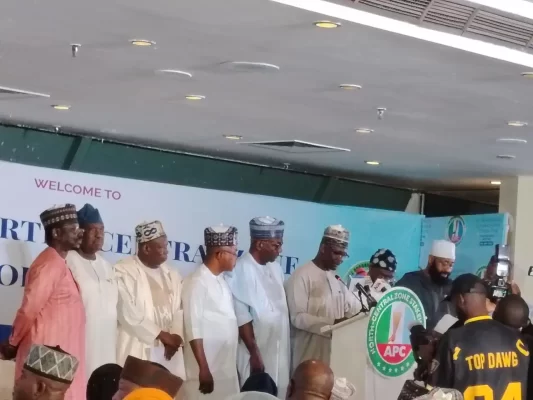Tinubu sends Rivers ₦1.48tr budget to National Assembly for approval
President Bola Ahmed Tinubu has formally transmitted the 2025 Appropriation Bill of Rivers State to the National Assembly for approval, citing the ongoing emergency rule in the state and the absence of a functioning House of Assembly.
Senate President Godswill Akpabio read the President’s letter during plenary on Wednesday.
The letter, which accompanied the budget proposal, stressed the need for National Assembly intervention following the Supreme Court’s recent affirmation of the state’s 2025 budget notification.
“Rivers State is currently under emergency rule proclaimed and duly gazetted in March 2025. Regulation 4, subsection 2(f), of the Emergency Rule requires authorisation for expenditure from the Consolidated Revenue Fund in the absence of a functioning state assembly,” the President’s letter explained.
The proposed Rivers State 2025 budget totals ₦1.481 trillion, with a significant focus on infrastructure, healthcare, education, and agriculture.
A breakdown analysis indicates that ₦324 billion is earmarked for infrastructure, covering both ongoing and new projects; ₦166 billion is allocated to the health sector, including ₦5 billion for free treatment of malaria and other common ailments; ₦75.6 billion is set aside for education; and ₦31.4 billion is proposed for agricultural development.
According to the letter, the spending plan is designed to stimulate the state’s economy and generate approximately 6,000 jobs, particularly through investments in agriculture and infrastructure.
“The National Assembly is expected to act on behalf of the state assembly in this instance. I trust the Senate will accord this bill expedited and favourable consideration,” the President wrote.
Akpabio referred the document to the Senate Ad-Hoc Committee on Emergency Rule in Rivers State, mandating it to review and report back to the Senate as soon as possible.
The move marked a significant constitutional exercise, with the federal legislature stepping in to approve a sub-national budget under emergency rule — a rare but legal provision under Nigeria’s democratic framework.








